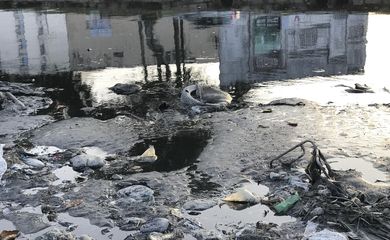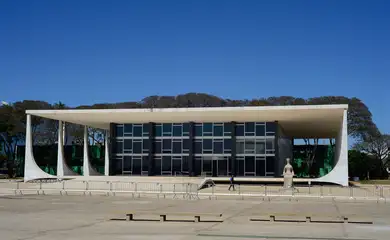Supreme validates Sanitation Legal Framework

The Federal Supreme Court (STF) today (2) validated the Legal Framework for Basic Sanitation (Law 14.026/2020) , sanctioned by President Jair Bolsonaro in July last year . The framework provides for the universalization of water and sewage services by 2033 and makes it possible to inject more private investments into the sector.

The trial started last week and ended on Thursday with a score of 7 votes to 3 in favor of the constitutionality of the law.
The legality of some points in the framework was questioned by the PDT, PCB and PSOL. Among the arguments, the parties argued that the rules induce private sanitation and water supply companies to participate in bids in places where the state-owned companies that carry out the services do not present losses, leaving the deficit companies under the responsibility of states and municipalities. According to the legends, the measure could penalize the poor population and create a monopoly in the sector, in addition to violating the autonomy of the states.
In the judgment, the vote of the rapporteur, Minister Lux Fux, pronounced on November 25th , prevailed. According to the minister, Congress opted for the optional concession model and maintained federative autonomy.
In addition, according to Fux, the Legal Framework will be able to reduce public spending on the health system, contribute to the revitalization of hydrographic basins, with the conservation of the environment and the reduction of water loss, in addition to providing a better quality of life for the population.
The vote was followed by ministers Nunes Marques, Alexandre de Moraes, Luís Roberto Barroso, Gilmar Mendes, Dias Toffoli and Carmen Lúcia.
In today 's session, the minister recalled that the presence of landfills is still observed in several municipalities across the country and that the Brazilian Constitution cites the word health 83 times.
“We are seeing that landfills serve as if they were rotten pots that people collect. Therefore, instead of the Brazilian society building centers to improve food, health and education, it is providing this type of situation”, he said.
Minister Edson Fachin opened a divergence and understood that the law violates the autonomy of the states by regulating the concession of local services. Ricardo Lewandowski and Rosa Weber also accompanied the minister on this point.
On November 24 , the first day of the trial, the Attorney General of the Union (AGU) defended the constitutionality of the framework. According to the agency, the law sought to reduce the inefficiency of the sector and made it possible to estimate an investment of R$ 357 billion by 2033.
According to the AGU, 46.8% of the Brazilian population does not have access to sewage treatment and the loss of water in distribution is 38.5%.
Text translated using artificial intelligence.





